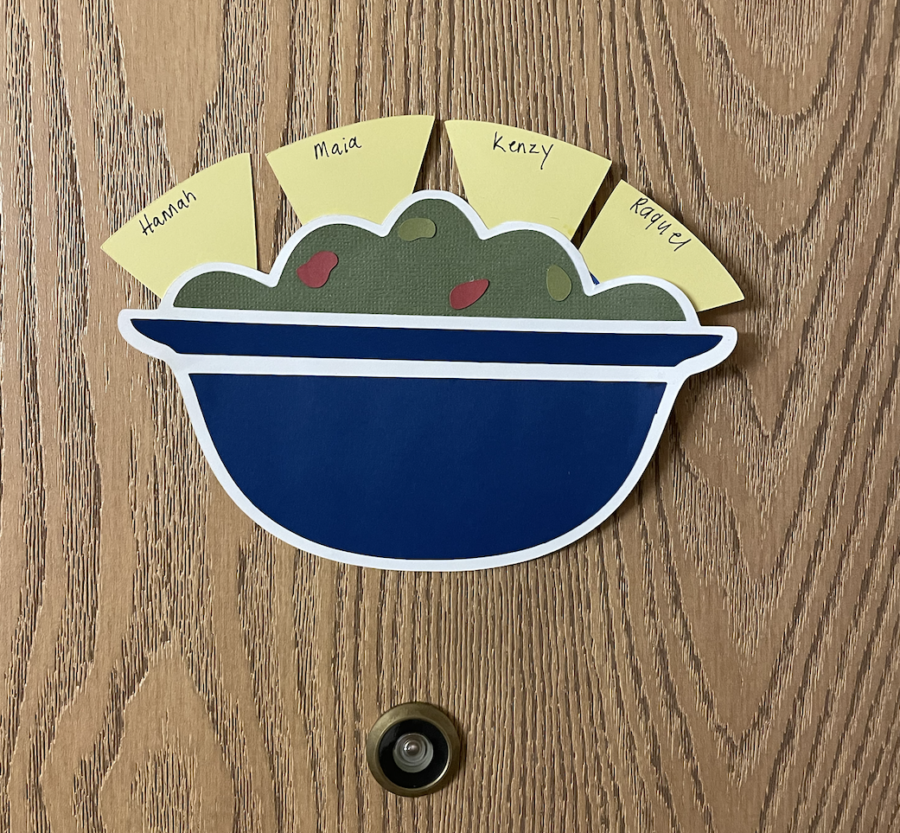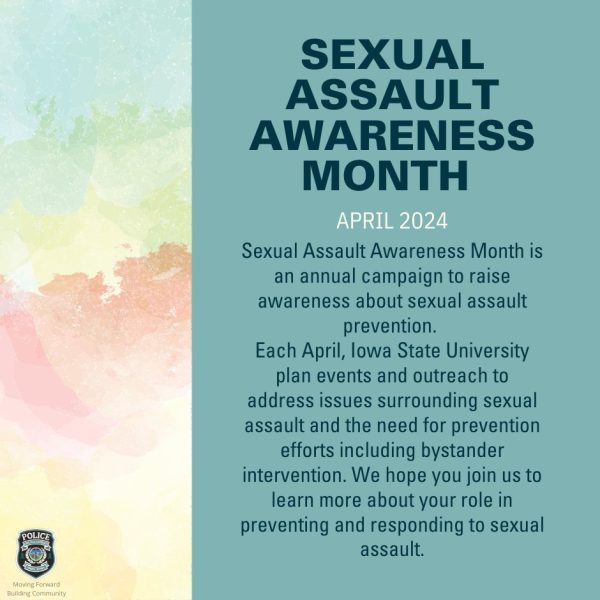Straying away from your given name
Residence assistants (RAs) decorate doors with students preferred names.
The practice of using a chosen name is a part of Iowa State student Jackie Atterberg’s identity as a transgender woman, and it played a role in her transition process.
People living in dorm halls at Iowa State University have the opportunity to put their chosen names on door decorations in residence halls.
“Use and respect is just that, a simple respect of one’s identity,” Casey Dworzynski, the Martin Hall director, said. “Whether it be a given or chosen name, it is respect for a person to use their name. It respects their history and their identity.”
Chosen names are names that individuals wish to be known by, but this may be different from their legal name, according to a Johns Hopkins University article.
“When it comes to binary trans people like me, I have found that a name change, especially on a legal level, can be greatly beneficial,” Jackie Atterberg, a senior in mechanical engineering, said.
Students may choose a name that is easier for others to pronounce or remember. Some people who are trans and non-binary choose to go by a name that is different from their legal name, oftentimes to feel true to themselves and empowered in their identity.
In residence halls, residence assistants (RAs) are encouraged to make door decorations that use an individual’s chosen name.
“I want to help [RAs] understand part of the reason door decs are more than just an administrative task.” Dworzynski said. “It respects their history and their identity.”
Residence hall door decorations are one way to help students feel supported on campus, but using chosen names on a day-to-day basis is just basic human decency, said M Aesoph, a freshman majoring in design.
“It’s just basic human decency to refer to others how they want to be referred to,” Aesoph said. “If someone is constantly referred to by a name that they don’t feel belongs to them it can be really damaging.”
Individuals in the non-binary and trans community often used chosen names over their legal names. Among trans and non-binary individuals, 30% legally change their name, according to the U.S. Transgender Survey. However, this does not account for individuals who have not had their name legally changed.
“Chosen names for individuals that are non-binary or trans can be especially important because it is a concrete step towards identifying the way they truly feel.” Aesoph said. “It’s often very monumental in shedding the name that has caused discomfort for so long and finally finding one that makes them feel like themself.”
For trans and non-binary individuals, choosing a new name is often an important step in transitioning and feeling comfortable.
“I myself am a transgender woman and I did choose my name,” Atterberg said. “I personally found it to be important to me when undergoing the early stages of my transition.”
Having a legal name change can also help non-binary and trans students avoid harassment on and off campus.
“I know that I was harassed by bouncers and medical professionals before getting my ID updated.” Atterberg said. “I am sure that for many non-binary and trans people, getting their name changed can help them to feel more confident in their transition and to find new identity with their new gender, as well as to avoid harassment.”
Individuals may also use a chosen name to feel more comfortable with themselves on a day-to-day basis.
“My relationship with my birth name depends on the day, sometimes it doesn’t bother me, but sometimes it just doesn’t connect with me at all.” Aesoph said. “When I hear my name, I just want it to feel natural.”
It is important to use their chosen name to help empower peers and individuals around you, Dworzynski said.
“They may be chosen names that empower them to feel who they are,” Dworzynski said. “Your name is what connects you to the world and, whenever spoken or thought of, will connect people to their lived experiences with you.”
Your donation will support the student journalists of the Iowa State Daily. Your contribution will allow us to purchase equipment, send our student journalists to conferences and off-set their cost of living so they can continue to do best-in-the-nation work at the Iowa State Daily.















